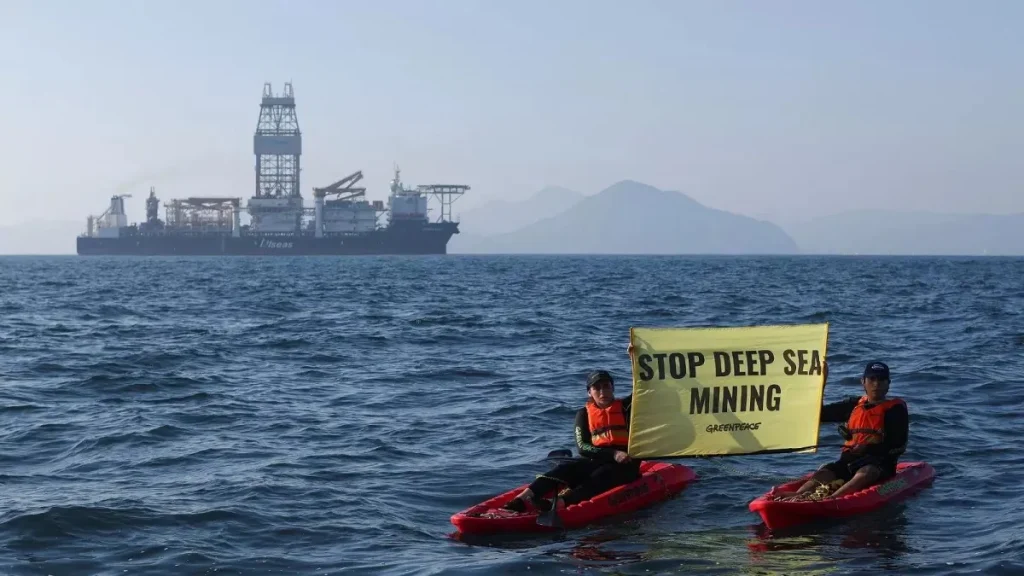France’s parliament has voted to ban deep-sea mining in the country’s waters, while also backing an international moratorium on the practice until its environmental impact can be fully assessed.
The resolution, passed by the National Assembly with 215 votes in favour and 56 against, marks a clear stance against commercial exploitation of the deep seabed. Lawmakers called for France to play a leading role in blocking attempts to regulate or expand the practice at the global level.
National Ban and International Push
The vote paves the way for a domestic ban across France’s vast marine territory, one of the largest in the world. At the same time, members of parliament urged the government to prevent the adoption of deep-sea mining regulations at the International Seabed Authority (ISA), the body tasked with overseeing seabed activities in international waters.
MPs also pressed the French government to oppose the granting of any provisional mining licences and called for reform of the ISA to make its decision-making process more transparent. The resolution underlined that no exploitation should take place unless independent scientific research proves it can be carried out without degrading marine ecosystems or threatening biodiversity.
Environmental Risks Underlined
The debate drew attention to the fragile nature of deep-sea ecosystems and their importance to the global climate. The deep seabed plays a key role in absorbing carbon dioxide, while also hosting ecosystems that are still largely unexplored. At the same time, it contains valuable mineral deposits such as copper, nickel and manganese, which are increasingly in demand for batteries, electronics and other industries.
French Secretary of State for the Sea, Hervé Berville, cautioned against the dangers of extraction, warning that exploitation would inevitably cause irreversible damage. “Let us have no illusions: there can be no exploitation without irreversible damage to marine ecosystems,” he told parliament.
Green MP Nicolas Thierry, who introduced the motion, argued that the stakes go beyond biodiversity, linking seabed protection directly to the fight against climate change. “If we damage the ocean’s capacity to capture carbon, we have no chance of winning the battle for the climate,” he said, describing the vote as a victory for environmentalists and the seabed itself.
Global Context and Approaching Deadline
France was granted a seabed exploration licence by the ISA in 2001, one of 31 granted worldwide. However, the UN body is now under pressure to finalise regulations that would govern exploitation of the deep seabed. Under UN rules, the ISA has two years to deliver such a framework, with the deadline set for July 2023.
President Emmanuel Macron has previously signalled his opposition to deep-sea mining. Speaking at the UN Ocean Conference in Lisbon in June 2022, he called for a new international legal framework to stop extraction from moving forward.
France’s stance adds to growing international concern. Germany, Spain and New Zealand are among the countries that have already called for a halt to seabed mining until further studies are conducted on its impact. With the regulatory deadline approaching, the French vote signals mounting resistance to the opening of the world’s ocean floors to industrial extraction.






